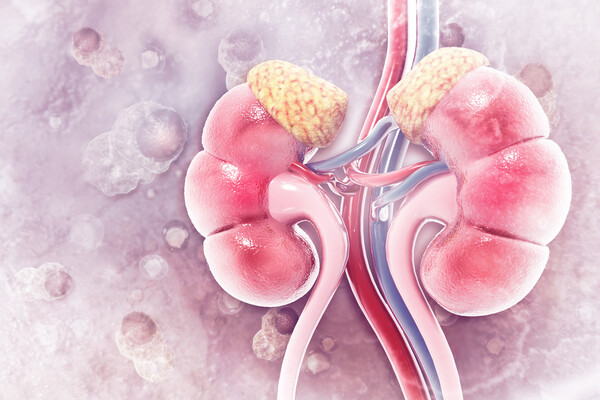The Korean Society of Nephrology (KSN) is accelerating efforts to implement the “National Kidney Health Improvement Plan (Kidney Health Plan 2033)” to enhance people’s kidney health and improve patients' quality of life.
According to the KSN on Monday, the number of patients with chronic kidney disease in Korea has reached approximately 4.6 million. The figure has more than doubled over the past decade. Diabetes is known to be the leading cause of end-stage kidney disease, accounting for half (47 percent) of all such patients.

Consequently, through “KHP 2033,” the KSN aims to achieve the following by 2033: a 10 percent reduction in the number of chronic kidney disease patients; a 10 percent reduction in the proportion of end-stage kidney disease patients caused by diabetes, and a 33 percent rate of home treatment (peritoneal dialysis/kidney transplantation) for end-stage kidney disease patients.
The KSN's goal is to reduce the number of chronic kidney disease patients to 4.14 million by 2033 and lower the proportion of diabetes-related end-stage renal disease (ESRD) patients to 42.3 percent.
It will also actively promote peritoneal dialysis to increase the home treatment rate to 33 percent. Peritoneal dialysis is significant as it ensures patients with ESRD have the right to choose a dialysis method that suits their lifestyle and medical situation. However, according to the distribution of renal replacement therapies for ESRD as of 2023, kidney transplants account for only 16 percent, and peritoneal dialysis stands at just 3.8 percent.
The KSN, therefore, plans to ultimately enhance the quality of patient-centered care and alleviate the socioeconomic burden of dialysis by promoting the use of peritoneal dialysis.
To achieve this, it is focusing on strengthening the prevention and early diagnosis of chronic kidney disease, promoting home treatment, and establishing policy foundations. Specifically, it is advancing the expansion of patient-centered treatment environments through discussions on a “Home Peritoneal Dialysis Promotion Policy.”
As part of public awareness activities, the KSN is running the “Know Your Kidney Score” campaign. Concurrently, it is working to develop practical improvement measures, including clinical guidelines to strengthen chronic kidney disease management and proposals for healthcare policies.
To share these activities with the public, the KSN recently established a “KHP 2033 Dedicated Board” on its website. This board contains the society's policy proposals, related press releases, promotional and educational materials, allowing the public to review the diverse policy directions the society is pursuing for kidney health.
“Through ‘KHP 2033,’ our society plans to contribute to enhancing the kidney health of the public and building a sustainable healthcare system,” KSN President Park Hyeong-cheon said. “We will gather public opinions through the ‘KHP 2033’ dedicated bulletin board and provide regular updates on progress.”
Related articles
- High-volume hemodiafiltration emerges as new standard for dialysis
- Boehringer Ingelheim broadens Jardiance access to chronic kidney disease
- ‘A low-potassium diet, recommended for kidney disease, can ruin health if done excessively’
- Right medication can save patients with atypical hemolytic uremic syndrome from dialysis
- Summer K-foods that can harm kidney patients
- Vantive Korea pushes to boost home peritoneal dialysis use
- When your child’s urine looks like cola, it may signal chronic kidney disease
- 80% of kidney patients call for home peritoneal dialysis to become national program: survey
- Study links peritoneal dialysis to reduced brain connectivity, higher dementia risk
- Expert urges 4.6 million Koreans with chronic kidney disease to break 3 small habits

